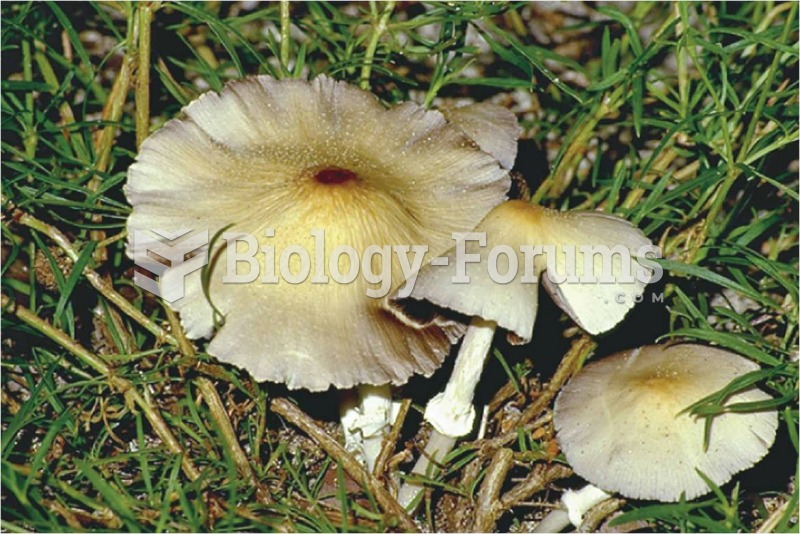|
|
|
Most fungi that pathogenically affect humans live in soil. If a person is not healthy, has an open wound, or is immunocompromised, a fungal infection can be very aggressive.
Many people have small pouches in their colons that bulge outward through weak spots. Each pouch is called a diverticulum. About 10% of Americans older than age 40 years have diverticulosis, which, when the pouches become infected or inflamed, is called diverticulitis. The main cause of diverticular disease is a low-fiber diet.
People about to have surgery must tell their health care providers about all supplements they take.
Human kidneys will clean about 1 million gallons of blood in an average lifetime.
It is difficult to obtain enough calcium without consuming milk or other dairy foods.







